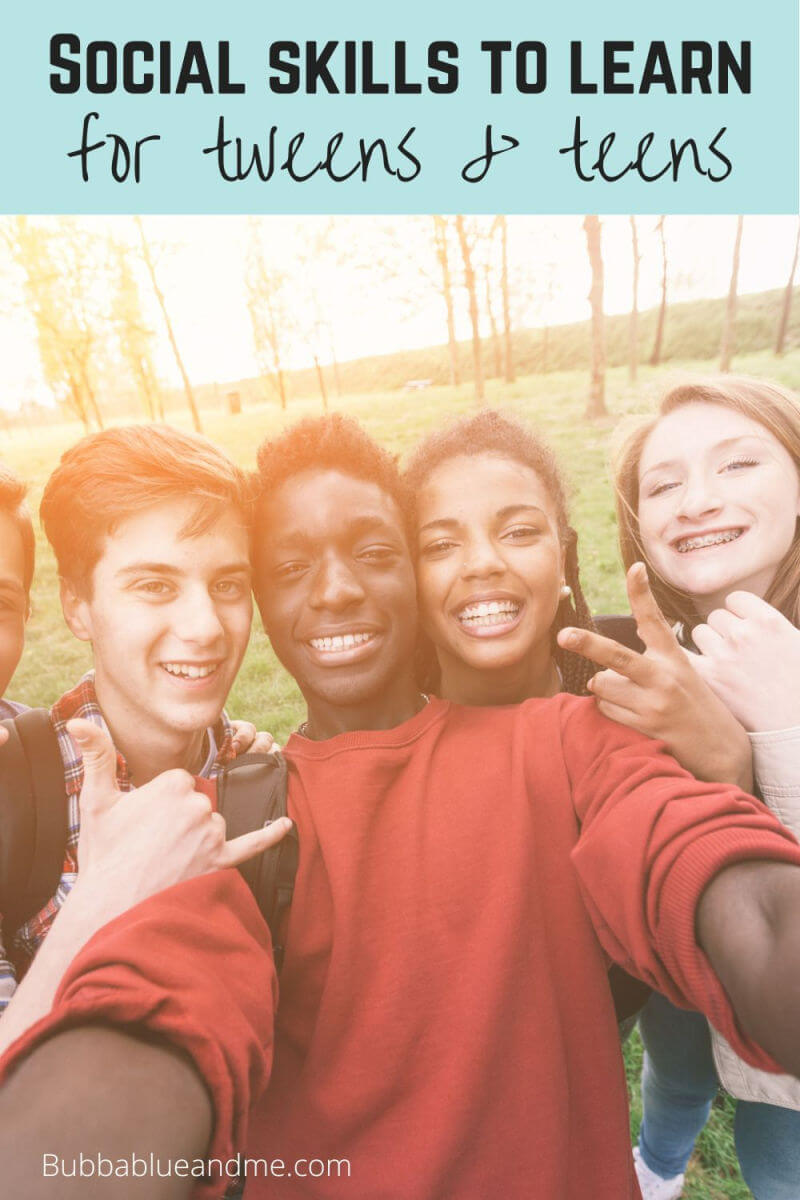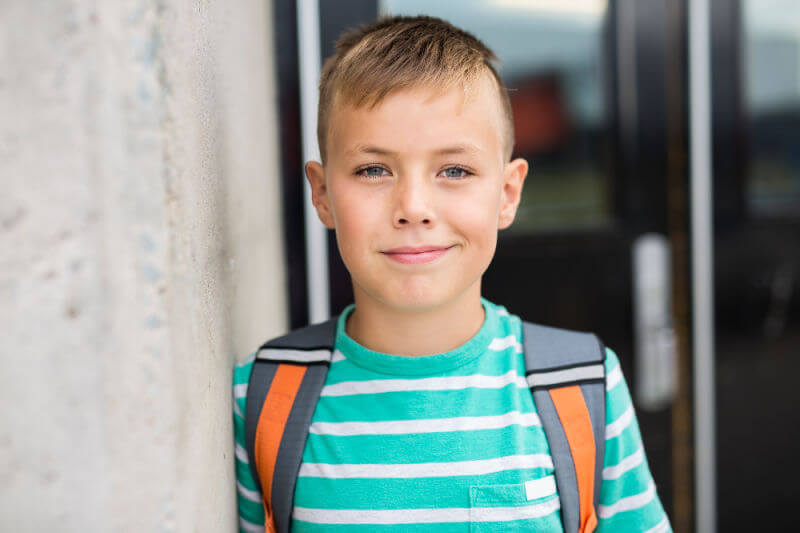Social skills for tweens and teens to learn
Bringing up children is a minefield. When they’re tiny it’s so much easier to know what you need to help and support them to learn skills in. But as they get older, it’s harder to teach those skills as they’re less tangible and more about people skills or living, rather than physical actions. But social skills for tweens and teens are just as important as learning to walk, talk and read.
When they’re younger, social skills to learn include:
- Sharing
- Talking to others
- Taking turns / patience
- Working together/playing together
- Respecting boundaries
- Empathy
Research and child experts suggest that modelling behaviour is the best way for children to learn.
Whether that’s at home by parents’ behaviour, or from siblings or friends. It’s why nursery and school settings can have such an impact as children get older and are outside of the home more.
This learning method is just the same for older children, but they’re more wise to parents trying to teach them. They’ll also absorb and learn from other information they have access to, whether it’s books, magazines, the internet, social media or friends. As parents we can’t be there at all times, especially once children are at secondary school. We need to provide them the basis of social skills before they’re launched into their independent relationships, so they can take that learning with them and hopefully make the right decisions about how to act and behave while on their own with friends, in school or out and about.
Here’s some of the social skills that older children should be taught. Or if it’s not been directly taught, they should have experienced seeing others do, so they can learn appropriate ways to act when they’re let loose on society.

Social skills to teach tweens and teens
Independence
Much as we’d like to keep an eye on children, they need to learn independence at some point. For us it’s started with getting the local bus to school. And told he and a friend they could go into the supermarket to buy snacks while I nipped to another shop. We need to build their confidence in not only doing activities on their own, paying and getting back to where they need to without you. But also giving them chance to build trust with us.
Communicating their wants/needs
Yes, we know a lot of teenagers aren’t particularly communicative. But teaching them what we expect to hear when they need or want something, or just want to tell us concerns, is important. Older children need to know we’re still there to listen to them, and that they’re practiced in asking appropriately.
Ability to hold a conversation
Not all children find it easy to talk to all ages. As they get older they’ll need to be able to talk to adults, kids and everyone else. Secondary school provides more opportunities at widening their very local friendship group, and they’re speaking to a wider variety of teachers.
Recognising joking
Whether it’s sarcasm, pranks, or dry humour, it’s good to be able to work out if someone’s being serious or joking. And be able to shrug it off or join in the joke.
Conform and when to challenge
Tied in with respect, but children need to learn and understand when they can or should challenge, and when they need to conform to rules.
Respect
I think a lot of people nowadays say ‘kids these days don’t have respect’. Obviously that can’t apply to all children. But I think children do need to learn that they should have respect and treat people as they’d want to be treated. As they get older, they’ll probably form more opinions on who they do and don’t like, may get caught up with peer pressure. But they need to understand that people generally deserve respect.
Teachers – if children aren’t keen on the teacher, they need to realise that their peers in class deserve respect so they’re able to learn.
Other adults – when they’re correcting behaviour or providing information, it’s so frustrating when older children get lippy when they’re in the wrong. There’s been so many occasions at children’s playgrounds with older kids who’re not making them nice areas for younger children to play. Or teens cycling or skateboarding on tennis courts that quite clearly say only use for playing tennis.
Of course respecting the opposite sex or people who may not have as much opportunity as they themselves have.
And self respect for themselves. Being able to see their own positives.
Consent
Children are now taught consent in school from very early on, rightly so. Hopefully they’ll take that with them through their teen years and adulthood, where there can be more negative implications if they don’t agree or confirm consent.

Appropriate behaviour in social situations
Especially when with friends or if they’re getting exciting or are bored, behaviour can get silly. There’s a time and a place. Appropriate language is also one too learn. Yes people swear (unfortunately), but keep it at home, or in appropriate situations, and preferably not around younger children when you’re around them in a public place.
Confidence
Confidence without being cocky, self assertiveness to stand their ground. But also learning to listen to others opinions. To be able to stand up for friends or for those being bullies, means having a lot of confidence. But someone has to do it – if not at the time which is hard, but to not be scared to raise it as an issue with someone who can help.
When to walk away
Peer pressure can impact a lot of behaviour, but knowing when to walk away is such an important thing to know. Remove yourself from dangerous situations, or ones you don’t want to be involved with. The strength to walk away even though you might be jeered or laughed at, could be crucial.
How to dance
I’m a big believer in dance – it’s great for mental health, great for exercise, a mood lifter, and social. I’d love to get everyone open to having social dancing lessons, but informal dancing around the kitchen is perfectly good. And if children (however cool) can learn to ignore any worries, and let loose for a bit, with family time or friends, it can only be a good thing. Add singing on top, and they’ll always have a moodlifter.
What do you think are the social skills for tweens and teens to learn?
